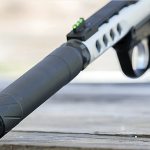This year could prove to be a pivotal one for the sporting goods industry on Capitol Hill. From responding to threats to cut basic programs like physical education and local park development to lobbying in favor of tort reform and international trade, SGMAs Government Relations Committee has established an ambitious and comprehensive public policy agenda.
“One of the reasons SGMA is relocating its headquarters to Washington D.C. is to build upon our strong tradition of being the sporting goods industrys advocate,” said SGMA President Tom Cove. “Given the real opportunities and challenges we see in the public policy arena, we intend to put a full court press on Capitol Hill this year.”
“From a legislative perspective, SGMA has to be as aggressive as ever,” said SGMA Chairman Tom Rogge (President; Cramer Products; Gardner, KS). “If we want national leaders to understand our needs, we have to take the time to educate them about the importance of quality physical education and the need to reform the irrational tort system facing our manufacturers.”
Physical Education at a Crossroads
Topping the agenda, SGMA will work for continued funding for the Carol M. White Physical Education for Progress (PEP) program. This program, which SGMA helped to create with Senator Ted Stevens (R-AK) in 2001, has provided more than $250 million in direct funding to school districts to purchase sports/fitness equipment and train teachers in innovative physical education techniques.
While the PEP Program has received increased funding every year of its existence, the program is now threatened. President Bush has indicated his intention to terminate the PEP program in two years. As a result, SGMA is organizing the sporting goods industry and other partners to double lobbying efforts to protect PEP. SGMA will fight any cuts to this successful program, which has revitalized hundreds of physical education programs around the country. SGMAs strategy will be focused on bringing these successes to lawmakers attention.
National P.E. Day Critical
SGMA is urging its members to participate in the SGMA Congressional PEP Rally in Washington, D.C. on Wednesday, May 4 (part of P.E.4LIFEs National P.E. Day activities around the country). It will be a decisive event for the future of physical education funding. SGMA, its member companies and allies will have to deliver a strong turnout to protect the PEP Bill from potentially draconian cuts.
Tort Reform
Long a priority of the sporting goods industry, tort reform has new life as a result of President Bushs strong commitment to address this difficult issue. The Presidents agenda currently identifies three key areas for reform: medical malpractice, class action, and asbestos litigation. SGMA will work with the administration and other business and consumer allies to make product liability reform a priority within this debate. Already this year, the House and Senate approved legislation reining in the excesses of class action lawsuits. SGMA supported and worked for final passage of this bill, known as the Class Action Fairness Act.
International Trade-Free Trade Agreements and Quotas
The upcoming legislative year likely will be active on the international trade front, with significant potential impact on the sporting goods industry. Free trade agreements for the Central American region (CAFTA) and Thailand could be proposed and debated. SGMA will be soliciting input from member companies to determine an industry position. At this time, the SGMA membership has preliminarily indicated an interest supporting both of these agreements in order to facilitate movement of goods, protect intellectual property, and open up markets in affected countries.
In addition, SGMA is monitoring closely the termination of the quota system on apparel and textile imports into the United States. Input from SGMAs membership suggests considerable uncertainty in the market as a result of quota developments. Some industry segments, including hosiery, have successfully petitioned the U.S. Government to institute “safeguards” to protect domestic industries from unfair disruption of their markets. SGMA is talking to member companies to determine a position on “safeguards.”
Health and Wellness Legislation
SGMA sees several opportunities to include a pro-sports/pro-fitness position on a range of overarching health and wellness proposals expected to be introduced in the 109th Congress. Senators Frist (R-TN), Wyden (D-OR) and Harkin (D-IA) have expressed interest in moving major legislation in this area. SGMA will work with these legislative leaders as well as the Congressional Fitness Caucus to develop policy initiatives that contribute to more Americans playing sports and being physically active on a regular basis.
Parks and Recreation Infrastructure Cut!
President Bushs budget, regrettably, calls for the zero funding of the nations primary funding program for local parks, trails, ball fields, courts and playgrounds-the Land and Water Conservation Fund (LWCF). The LWCF has been responsible for funding more than 38,000 state and local recreation projects, including more than 8,000 soccer fields alone. The program, which is funded from oil and gas royalties and which sends money to every state, received $92 million last year.
SGMA has long been a champion of this fund and will fight to restore this funding. At a time the country is struggling to keep its citizens physically active and healthy, it makes no sense to not fund a program which has created countless opportunities for safe, close-to-home recreation. SGMA member companies are urged to contact their Congressional representatives to make the case that outdoor recreation places are central to quality of life, and will ultimately pay for themselves in reduced health care costs and improved productivity.















